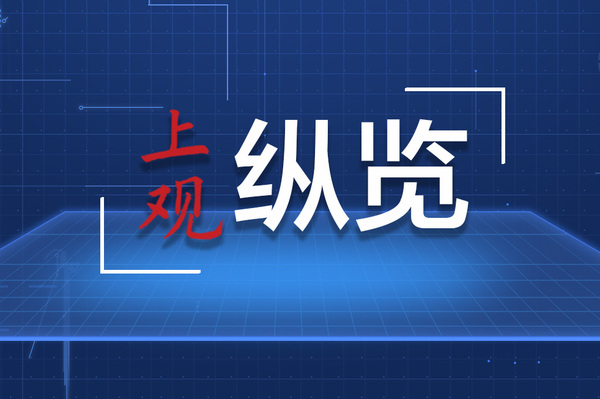Regarding the dividend mechanism of listed companies, the China Securities Regulatory Commission plans to amend the rules
The China Securities Regulatory Commission (CSRC) plans to revise a series of rules, including the "Guidelines for the Supervision of Listed Companies No. 3- Cash Dividends of Listed Companies" and the "Guidelines for the Articles of Association of Listed Companies", and the exchange will simultaneously revise and standardize its operational guidelines.
Experts believe that in the early stage, the China Securities Regulatory Commission (CSRC) has introduced a policy of linking dividends and reducing holdings. While adhering to company autonomy, it will continue to improve and optimize the cash dividend supervision system, strengthen information disclosure supervision, and facilitate the optimization of mid-term dividend procedures. This will better leverage the investment side's driving role and continuously enhance investors' sense of gain.
Overview of key points
For companies listed on the main board whose dividends have not reached a certain proportion, or for companies with long-term large financial investments but low dividend ratios, strengthen information disclosure supervision
Further facilitate the mid-term dividend program
Further tilt towards high dividend companies in the evaluation of exchange information disclosure and the dividend ranking of listed company associations
Encourage fund companies to issue dividend fund products
Strengthen constraints on enterprises that exceed their ability to distribute dividends
Plan to target companies that do not receive dividends or receive less dividends
Strengthen institutional constraints and supervise dividend distribution
Recently, the China Securities Regulatory Commission (CSRC) has introduced and implemented a policy of "linking dividends and share reduction". If a listed company has not received cash dividends in the past three years, or the cumulative amount of cash dividends is less than 30% of the annual net profit in the past three years, the controlling shareholder or actual controller shall not reduce their shares of the company through the secondary market. According to the person in charge of relevant departments of the China Securities Regulatory Commission, it is planned to further strengthen institutional constraints and supervise dividend distribution for companies that do not distribute dividends or distribute less dividends, promote further optimization of dividend distribution methods and rhythms, and provide more incentives for companies with good dividends. At the same time, it is also necessary to strengthen restrictions on companies that exceed their ability to distribute dividends.
Specifically, it is necessary to strengthen institutional constraints and supervise the distribution of dividends for companies that do not distribute dividends or receive less dividends. One is to strengthen the supervision of information disclosure. For companies listed on the main board whose dividends have not reached a certain proportion, it is required to disclose and explain the reasons. The second is to strengthen disclosure requirements for companies with more financial investments, urge companies to improve asset utilization efficiency, and better focus on their main business and return to investors. The third is to strengthen inquiries and regulatory interviews. Strengthen regulatory inquiries, help investors make better judgments on dividend information, and encourage increased dividend efforts through interviews and other means.
Promote further optimization of dividend distribution methods and pace. One is to simplify the mid-term dividend distribution procedure. Facilitate the company to further increase the frequency of dividends and enable investors to better plan their funding arrangements. The second is to guide the company in formulating a dividend policy for stable growth. Promote the revision of the company's articles of association, enhance the operability of dividend policies, guide the company to explore stable growth dividend distribution policies, and provide more stable dividend returns to investors.
Provide more incentives to companies with good dividends. One is to give more "honors" to companies with good dividends. Further tilt towards high dividend companies in the evaluation of exchange information disclosure; The Listed Company Association is researching and optimizing the compilation method of dividend lists for listed companies, and increasing publicity efforts to guide companies to establish correct value orientation. The second is to promote the development of more influential dividend index products. Encourage fund companies to issue dividend fund products and guide market funds to increase their preference for cash dividends from listed companies.
Strengthen the constraints on enterprises that exceed their ability to distribute dividends. Although exceeding the ability to distribute dividends is not a prominent issue in A-shares, the China Securities Regulatory Commission will still pay close attention and take multiple measures to strengthen prevention. One is to strive to ensure the authenticity of the company's performance, a solid foundation for dividends, and effectively prevent financial fraud and financing dividends by listed companies. Secondly, for listed companies with a high debt to asset ratio and insufficient operating cash flow, but with a sustained high proportion of dividends, it is required to disclose in detail the rationality of the dividend plan and its impact on the company's production and operation.
Continuously guide listed companies to improve their dividend levels
Public information shows that since 2001, the China Securities Regulatory Commission has continuously improved the dual constraints of corporate governance and information disclosure, forming a policy framework including the Securities Law, Dividend Guidelines, Articles of Association Guidelines, and the Exchange's Standardized Operation Guidelines. Through policy guidance and regulatory constraints, the dividend level of listed companies has been continuously improved.
One is to improve governance mechanisms and strengthen internal constraints. In 2004, the China Securities Regulatory Commission required listed companies to include profit distribution methods in their articles of association and promote independent directors to play a more active role in dividend decision-making. In 2014, it was required to separately count and publicly disclose the votes of small and medium-sized shareholders. The new Securities Law of 2019 further strengthened the requirements for articles of association.
The second is to guide the dividend ratio through semi mandatory information disclosure. In 2004, the China Securities Regulatory Commission established rules requiring companies that made profits but did not distribute dividends to provide detailed explanations in their annual reports, using the disclosure requirement of "no dividend means explanation" to urge companies to strengthen dividend distribution.
The third is to reduce the cost of dividends. Starting from 2008, it was allowed to implement dividends in interim reports without auditing. Promote tax authorities to implement differentiated tax burden arrangements for dividend income and guide long-term investment.
The fourth is to strengthen regulatory constraints on "iron roosters". Conduct interviews with companies that have the ability to distribute dividends but do not distribute them, urge long-term non dividend companies to better repay investors, and promote the concept of cash dividends.
The total amount of dividends in the domestic market ranks second in the world
Through the above series of measures, we have continuously guided listed companies to improve their dividend levels, and the total amount of dividends in the domestic market has ranked second in the world.
Data shows that in the past five years, the dividend amount of A-share listed companies has been increasing year by year, with a cumulative dividend of 8.2 trillion yuan, and the dividend amount has exceeded the financing amount of that year. In 2022, a total of 3291 Shanghai and Shenzhen listed companies in China's domestic market received cash dividends, accounting for 67.1% of the total number of listed companies at the end of 2022. The total cash dividends for the year reached RMB 2.06 trillion, of which RMB 1.62 trillion belonged to A-share shareholders. In international comparison, the number of dividend listed companies in the domestic market ranks first among the major securities markets in the world, the total amount of cash dividends ranks second in the world, and the proportion of dividend recipients ranks second in the world. In addition, 163 listed companies have announced their cash dividend plans for the first half of 2023, with an expected dividend of 203.1 billion yuan.
From the perspective of growth trend, the overall dividend scale in China's domestic market is showing a significant growth trend. Since 2012, the annualized average growth rate of total dividends has been 13.3%, higher than the average growth rate of net profit during the same period. In addition, the proportion of dividend listed companies has increased from around 50% before 2010 to a central level of 70% in recent years, and dividend habits have gradually increased.
From the perspective of dividend ratio, benefiting from the successive introduction of dividend related policies and guidelines, the dividend yield and dividend payment rate in the domestic market have shown a fluctuating upward trend since 2000. Among them, the dividend yield distribution range has gradually increased from 0.5% -1.5% before 2010 to the current 1.5% -2%. In 2022, the average dividend payout rate in China's domestic market was 32.5%, with an average dividend payout rate of 1.97%, which is at the mid to high level in major global markets.
From the perspective of dividend sustainability and growth, as of 2022, the proportion of companies that have received dividends for five consecutive years has increased from 20% ten years ago to 48%, and the proportion of companies that have received dividends for ten consecutive years has increased from 8% to 31%; The dividend amount of 412 listed companies has increased continuously for three years, accounting for 12% from 3% ten years ago, and the proportion of companies with continuous growth for five years has increased from 1% to 4%.
"Overall, the characteristics of domestic dividends are generally in line with the development stage and industry of the enterprise." Experts believe. Among them, the dividend payout rate of mainboard companies is higher than that of companies in the "two innovation" sector. The dividend behavior of listed companies shows certain differentiation among different industries. From the perspective of the average dividend payout rate, listed companies in the energy, major consumer, and public utility industries have relatively low demand for new investment and stable cash flow. Therefore, the average dividend payout level is higher, while the average dividend payout rate in the information technology, industry, and real estate industries is lower.
Expert: Cash dividends should be based on company autonomy
Regulation also needs to play a positive role
Should cash dividends be primarily based on company autonomy or mandatory? How to view the situation where some companies are questioned about their high proportion of dividends? What regulatory measures should be taken for "iron roosters" who have the ability to distribute dividends but remain penniless for years? In response to these hot issues of market concern, the reporter interviewed relevant experts.
Experts generally believe that cash dividends should be based on company autonomy. Dividends for listed companies need to take into account various factors such as profitability, cash flow, debt, growth stage, and development goals. Different types of shareholders have different attitudes and demands towards cash dividends, and it is necessary to balance the interests of the company and shareholders, as well as major and minor shareholders. The company's situation varies greatly, making it difficult to establish a universal dividend standard, especially in terms of quantitative indicators such as proportions and amounts. Under the mutual game between management, various shareholders, creditors, and other entities, enterprises with different growth stages, industries, governance structures, and ownership attributes will spontaneously form dividend arrangements that are suitable for their own needs. For example, the dividend levels of A-share startups and growth stage companies are lower than those of mature stage companies; Private enterprises have relatively weak financing capabilities, strong willingness to save and defend, and slightly lower dividend levels than state-owned enterprises.
Therefore, dividends are generally included in the scope of corporate autonomy in major overseas capital markets, and China mainly promotes dividends by guiding companies to formulate relevant provisions in their articles of association, promoting the role of independent directors and small and medium-sized shareholders in dividend decision-making. At present, a relatively high proportion of enterprises in China are in the growth stage, and dividend policies should fully consider the needs of economic development and enterprise growth, rather than focusing solely on fishing.
When it comes to the regulatory measures that should be taken for the "iron rooster" who has the ability to distribute dividends but has been penniless for years, experts believe that the overall capital market in China is not yet mature, and regulation needs to play a more active role in promoting the construction of an effective market through meaningful regulation. Firstly, some corporate governance issues are prominent and cannot form an effective constraint mechanism on dividends, requiring strengthened supervision and guidance; The second is that dividends have inertia and the "same group effect", which needs to be promoted in the early stages to establish benchmarks and form demonstrations; Thirdly, China's investment culture is not yet mature, and it is necessary to cultivate a healthier and more mature investment culture through more attractive dividend returns to promote sustainable development of the capital market. In recent years, a series of regulatory measures taken by the China Securities Regulatory Commission have played a positive role in reducing "iron roosters", promoting the cultivation of dividend habits, and improving dividend levels. They should continue to be adhered to and continuously optimized.
When it comes to questioning the high proportion of dividends paid by some companies, experts believe that the ability and amount of dividends paid by companies are mainly influenced by three factors. One is the undistributed profits accumulated from the company's current and past operations; The second is the current cash available; The third is whether the retained earnings can meet the company's future development needs. Whether or how much a company distributes dividends may not necessarily be linked to its current year's profits.
Although some companies have a relatively high annual dividend ratio, it still has its rationality, which needs to be comprehensively and objectively viewed. One reason is that some companies have stable profits and cash flow, and there is not much investment demand, so they maintain a high dividend payout rate. Secondly, some companies may maintain the same dividend amount even in the event of declining profits or losses. By continuously distributing dividends to stabilize investor expectations, it can lead to higher dividend payout rates in certain years. Thirdly, some companies may implement special dividends based on accumulated undistributed profits to reduce redundant funds. Experts believe that it is also possible for major shareholders to arbitrarily distribute dividends and empty the company regardless of the future development needs of the company. Therefore, it is necessary to strengthen supervision, but this should be a rare occurrence. Whether dividends are reasonable depends first on whether the profits are genuine and whether there is any fraud; The second thing to consider is where the cash comes from and whether it belongs to borrowing money for dividends; Finally, considering the dividend motives of major shareholders, we cannot equate a high proportion of dividends with dividends beyond our ability.




